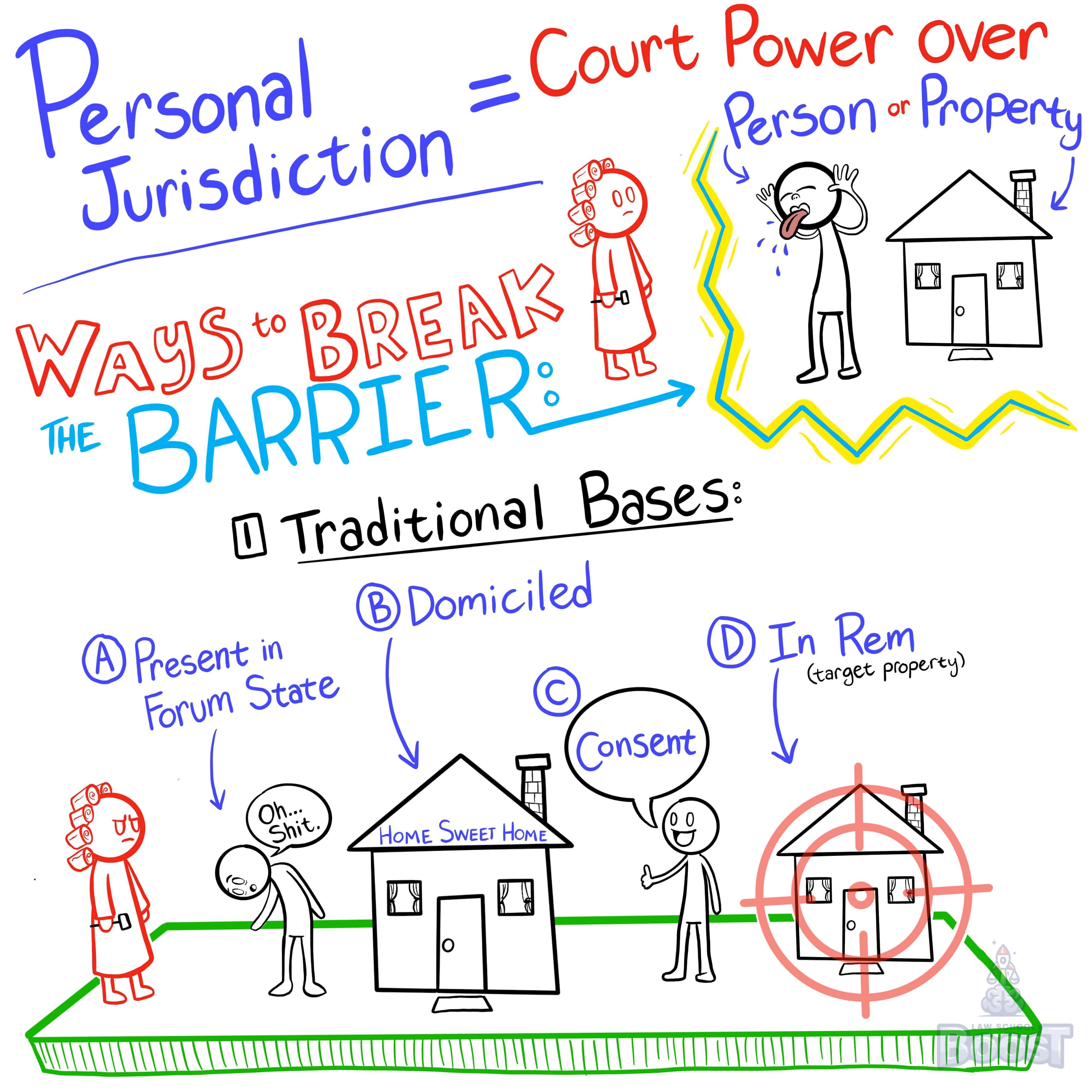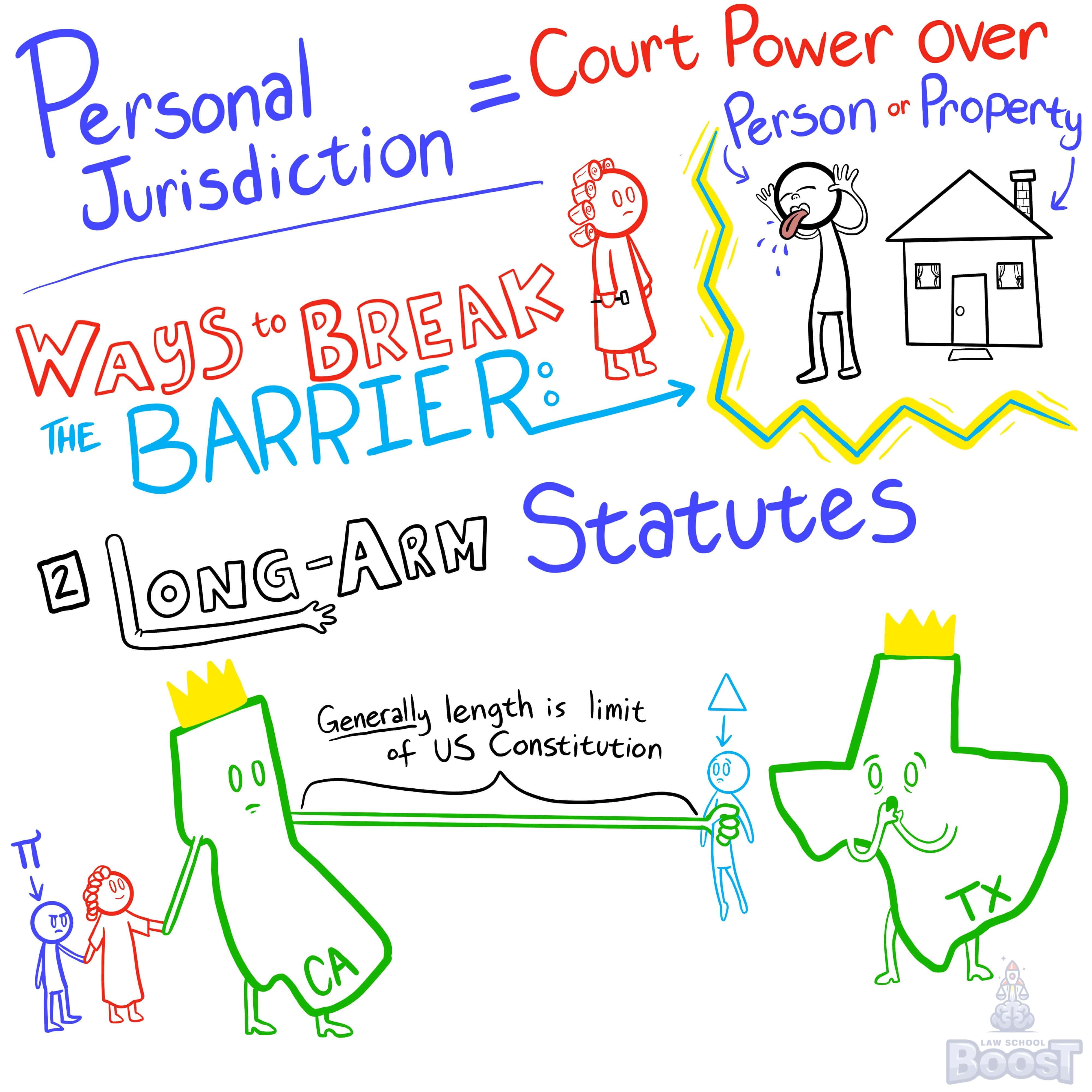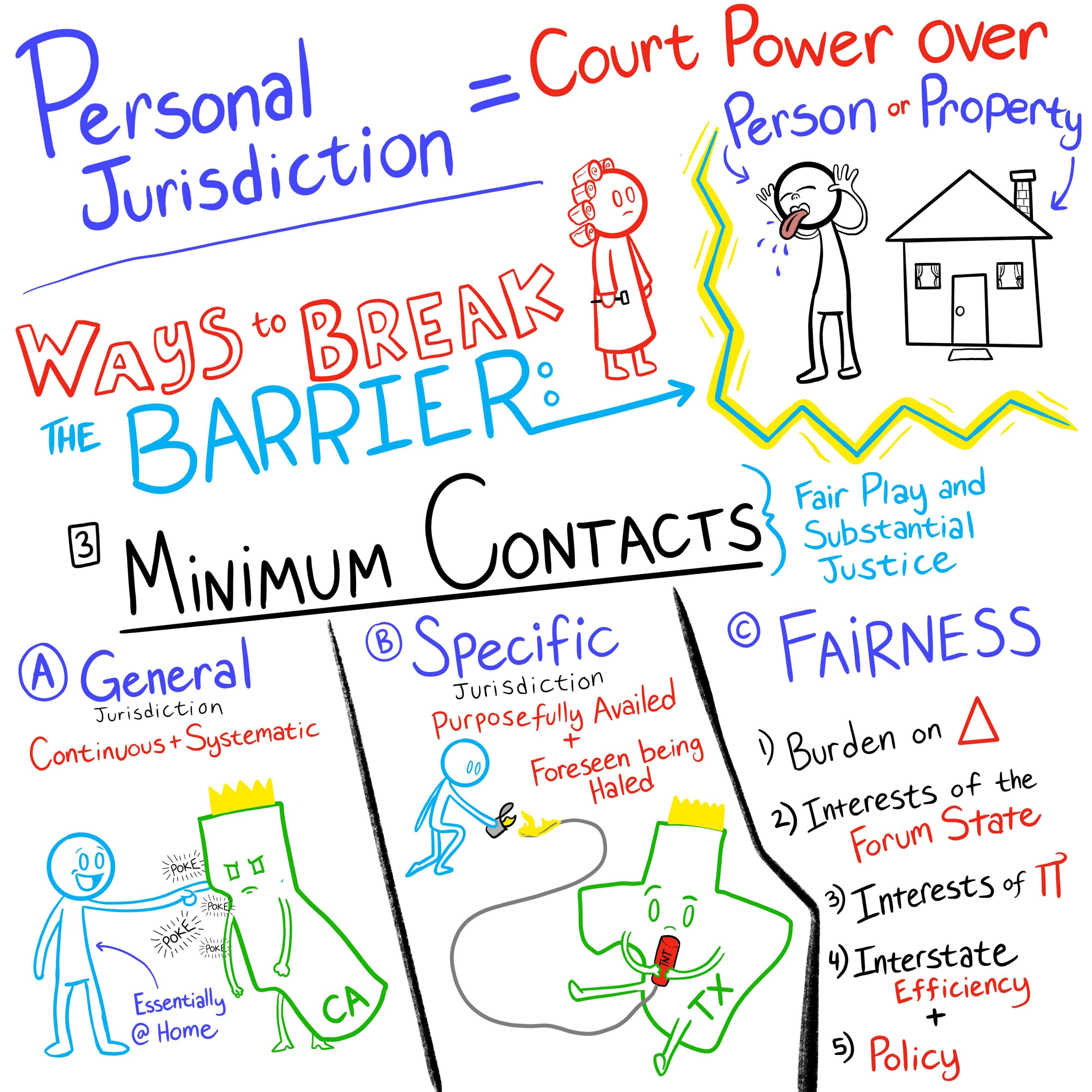🤤
Civil Procedure • Personal Jurisdiction
CIVPRO#005
Legal Definition
For a court to exercise personal jurisdiction, it must be consistent with due process. Thus, a defendant must have certain minimum contacts with the forum state such that exercising jurisdiction is consistent with traditional notions of fair play and substantial justice.
Plain English Explanation
In order for you to successfully convince your state's court to enforce its laws on someone who isn't in your state, you must argue that they have met a certain minimal threshold of contacts with your state. In other words, if you try to sue someone who has never visited your state, done business with your state, or even thought of your state, it would be pretty unfair for the court to force them to defend themselves inside of your state. To do so would "offend traditional notions of fair play and substantial justice" (a phrase taken from a case called International Shoe v. Washington, where this rule comes from).
However, where a party has some measurable level of contact with the forum state where they are being sued, a plaintiff can make the argument that a consequence of having those contacts is that they can be held accountable within the forum state.
Note that there is not brightline, objective level of contacts that establish "minimum contacts." On an exam, you will need to take facts from the fact pattern and make an argument for or against (likely both) the number of contacts being sufficient to establish personal jurisdiction.
However, where a party has some measurable level of contact with the forum state where they are being sued, a plaintiff can make the argument that a consequence of having those contacts is that they can be held accountable within the forum state.
Note that there is not brightline, objective level of contacts that establish "minimum contacts." On an exam, you will need to take facts from the fact pattern and make an argument for or against (likely both) the number of contacts being sufficient to establish personal jurisdiction.
Hypothetical
Hypo 1: Sam lives in State X and creates widgets that he sells locally in his town. He sells a widget to his neighbor, Jill. Jill later sells the widget to Bob, who takes it with him on a trip to State Y. While in State Y, Bob sells the widget to a local child. While the child played with the widget, it explodes and burns their hands. The child's parents want to sue Sam, who has never visited State Y. Result: A State Y court would likely be unable to exercise personal jurisdiction over Sam because it would be hard to argue that Sam is responsible for harm caused to the child in State Y from a widget he creates and sells only locally in State X.
Visual Aids



Related Concepts
How does the court assess fairness under the Burger King ruling?
What are the traditional bases of personal jurisdiction?
What is a long arm statute?
What is California's long arm statute?
What is personal jurisdiction?
When may a court exercise general jurisdiction over a defendant?
When may a court exercise specific jurisdiction?


